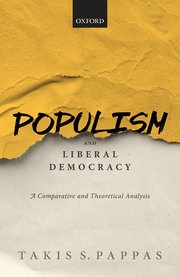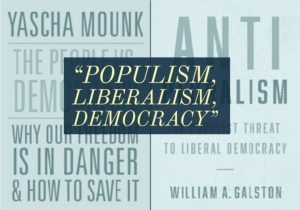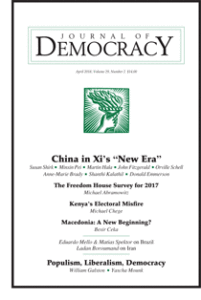 Greece was the first European country to elect a left-wing populist in the wake of the financial crisis and has showed a clear change of tack four years later. Is this really the end of the road for populism? analyst Zoe Alipranti asks in Prospect:
Greece was the first European country to elect a left-wing populist in the wake of the financial crisis and has showed a clear change of tack four years later. Is this really the end of the road for populism? analyst Zoe Alipranti asks in Prospect:
Europe will be interested to see what comes next. The political anger released during the crisis was rejected by Greeks, who voted for unity and reconciliation. Political renewal is underway, though significant internal change is required to rid Greece of clientelist politics and usher in the economic growth that will allow it to more fully recover.
The real significance of Sunday’s landslide defeat for the Syriza party, which rode to power promising to face down European Union fiscal conditions for rescuing Greece’s debt-ridden economy, is to highlight two questions that will determine if the wave of populist insurgency is here to stay, Ned Temko writes for The Christian Science Monitor:
- The first is whether populist political movements, once in government, can deliver on their promises.
- The second – more intriguing, and important – is whether that will actually matter to voters, who are often motivated by a more fundamental sense that the old political system hasn’t worked for them and needs to be shaken up.
 But the centre-right New Democracy (ND) party of Kyriakos Mitsotakis just as populist as its predecessor in office, according to Yiannis Baboulias, an investigative journalist, the writer of a forthcoming book on Golden Dawn, and a co-founder of the Precarious Europe project.
But the centre-right New Democracy (ND) party of Kyriakos Mitsotakis just as populist as its predecessor in office, according to Yiannis Baboulias, an investigative journalist, the writer of a forthcoming book on Golden Dawn, and a co-founder of the Precarious Europe project.
Greeks have not forgotten that ND was the party responsible for bankrupting the country and causing its crisis in the first place, he writes for Foreign Policy. If the ND government does manage to combine high growth and lower taxes, it could once again become the long-term reigning force in Greek politics. Should it simply extend austerity and focus on bashing the other side, Mitsotakis might not even last one full term.
If authoritarian populism is rooted in economics, then the appropriate remedy is a populism of another kind – targeting economic injustice and inclusion, but pluralist in its politics and not necessarily damaging to democracy. If it is rooted in culture and values, however, there are fewer options. Liberal democracy may be doomed by its own internal dynamics and contradictions, argues Dani Rodrik, Professor of International Political Economy at Harvard University’s John F. Kennedy School of Government, and the author of Straight Talk on Trade: Ideas for a Sane World Economy.
 The most thorough and ambitious version of the cultural backlash argument has been advanced by the Harvard Kennedy School’s Pippa Norris and Ronald Inglehart of the University of Michigan, he writes for Project Syndicate:
The most thorough and ambitious version of the cultural backlash argument has been advanced by the Harvard Kennedy School’s Pippa Norris and Ronald Inglehart of the University of Michigan, he writes for Project Syndicate:
In a recent book [above], they argue that authoritarian populism is the consequence of a long-term generational shift in values. ….On the other side of the argument, economists have produced a number of studies that link political support for populists to economic shocks. In what is perhaps the most famous among these, David Autor, David Dorn, Gordon Hanson, and Kaveh Majlesi – from MIT, the University of Zurich, the University of California at San Diego, and Lund University, respectively – have shown that votes for Trump in the 2016 presidential election across US communities were strongly correlated with the magnitude of  adverse China trade shocks.
adverse China trade shocks.
The historical record since 1945 gives us a picture of how populists operate once they hold political power. The record shows that populism is inimical to liberal democracy, and not a corrective to some of its failings, Takis S. Pappas – author of Populism and Liberal Democracy [above] – writes for the National Endowment for Democracy‘s Journal of Democracy.
Ultimately, the precise parsing of the causes behind the rise of authoritarian populism may be less important than the policy lessons to be drawn from it. There is little debate here. Economic remedies to inequality and insecurity are paramount, Rodrik concludes.







